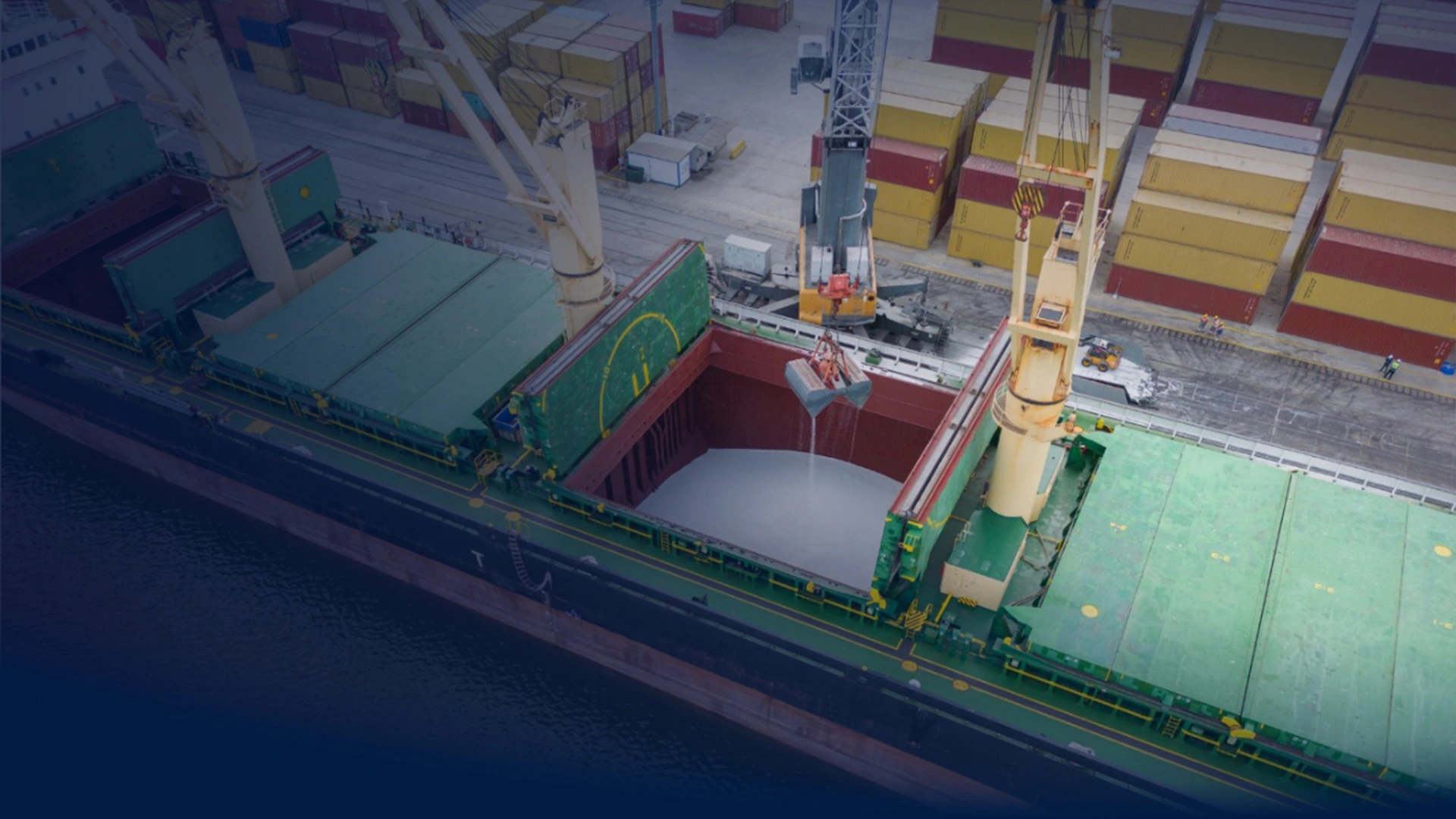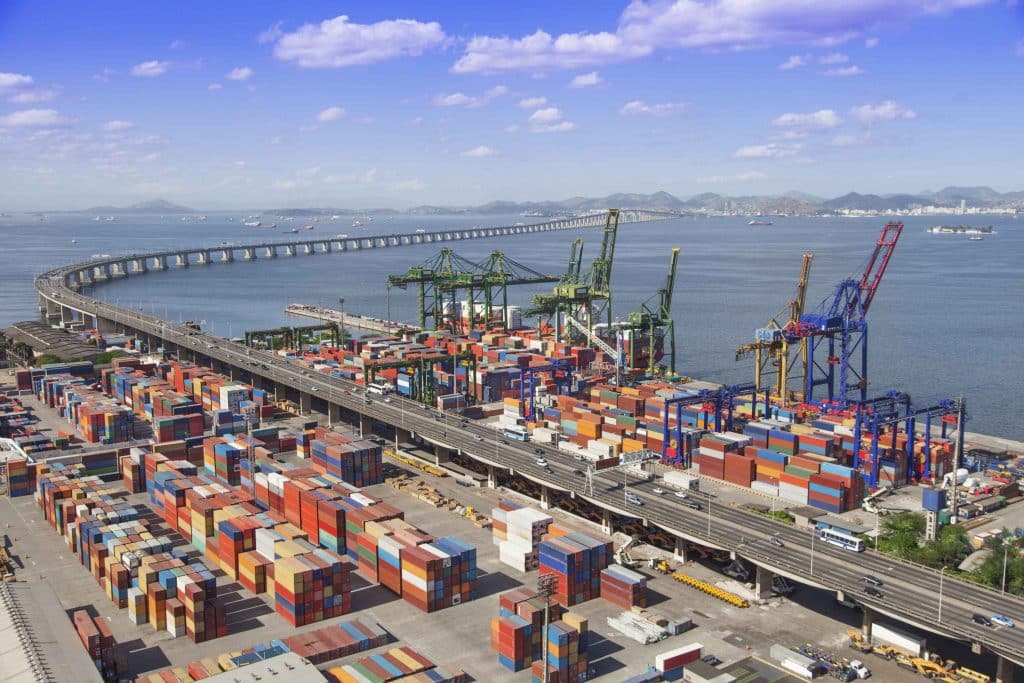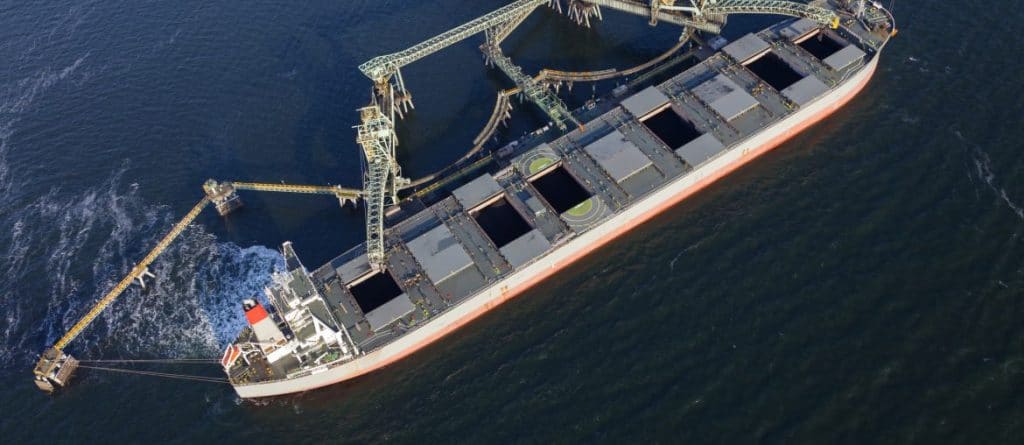Towards low-carbon logistics: how the energy transition is redesigning ports
Global port logistics is undergoing one of the greatest transformations in its history — the transition to a low-carbon model. This movement is a direct response to several factors, such as regulatory requirements, stakeholder pressure, and global decarbonization targets. In Brazil, this agenda gains even more strength through the advancements of Wilson Sons, which positions […]
- 21/10/2025
- 5 minutes

Global port logistics is undergoing one of the greatest transformations in its history — the transition to a low-carbon model. This movement is a direct response to several factors, such as regulatory requirements, stakeholder pressure, and global decarbonization targets.
In Brazil, this agenda gains even more strength through the advancements of Wilson Sons, which positions sustainability as a strategic pillar of its market operations. Whether through asset electrification, energy efficiency, or digitalization, its port and maritime operations are designed to operate with the highest level of climate responsibility.
In this article, we explore how the energy transition is reshaping the Brazilian port sector — and how Wilson Sons’ experience demonstrates that operational performance and environmental commitment can go hand in hand.
The Global Urgency for Low-Carbon Logistics
According to the International Maritime Organization (IMO), maritime transport accounts for approximately 3% of global greenhouse gas emissions. Although it remains the most emission-efficient mode of freight transport per ton moved, the growth of international trade demands that the sector accelerate its energy transition.
With progressive emission reduction targets, port logistics has evolved toward carbon-neutral strategies. Ports that once operated purely as logistical platforms are now central players in national decarbonization efforts.
Within this context, Wilson Sons stands out for its long-term investments in energy efficiency, innovation, and environmental value creation — anticipating trends that will soon become minimum requirements in global logistics chains.
At Tecon Rio Grande, for example, several energy efficiency solutions have been implemented, including:
- Replacement of metal vapor reflectors with LED lighting;
- Paving of surfaces with higher solar reflectance to reduce thermal heating;
- Expansion of photovoltaic panels in support areas;
- Automation of gates and yard operations with real-time monitoring systems.
These initiatives have increased the terminal’s energy efficiency and enabled it to reach zero emissions in 2024 — a milestone for the Brazilian port sector.
However, the energy transition extends beyond fixed infrastructure — it also includes fleet modernization. In this regard, Wilson Sons has been investing in the gradual electrification of its assets, such as:
- Testing electric terminal tractors at Tecon Salvador;
- Adopting azimuth propulsion tugboats with higher efficiency;
- Acquiring twin-fin class vessels with improved energy performance.
These measures have delivered up to 30% reductions in energy consumption per operation, lower pollutant emissions, decreased maintenance needs, and improved safety, ergonomics, and operational comfort for employees.
Clean Energy Generation and Market Advantage
Another key front in Wilson Sons’ energy transition strategy is self-generation of clean energy. The company has invested in solar power projects across terminal support areas and in the use of I-REC certified renewable energy credits, avoiding the emission of approximately 22 tCO2e/year across five berths at its OffshoreSupport Base in Rio de Janeiro.
This approach not only reduces emissions but also provides tariff predictability and strengthens the company’s position in contracts with international clients who increasingly demand transparency regarding the energy sources behind operations.
Ports capable of delivering low-carbon logistics services are becoming the preferred partners of shipowners, exporters, and shippers committed to sustainable supply chains. In other words, clean energy has become a competitive advantage.
“The use of clean energy in our terminals reinforces our commitment to the climate agenda and positions the company among the operators most aligned with global environmental standards.”
— Gustavo Machado, COO of Wilson Sons
Public Commitments and the Future of the Climate Agenda
Wilson Sons maintains public commitments aligned with the United Nations Sustainable Development Goals (SDGs) and with national and sectoral climate targets. The company adopts ESG performance indicators, reports its emissions through recognized platforms, and follows international frameworks such as the GHG Protocol and TCFD guidelines.
Plans for the coming years include:
- Expanding the renewable electricity matrix;
- Gradual replacement of the ground fleet with electric vehicles;
- Feasibility studies for onshore power supply (OPS) for docked vessels;
- Expansion of solar energy systems at terminals;
- Increasing use of digitalization as a tool for environmental and energy management.
The new frontier of port logistics is, therefore, ecological. Ports that operate efficiently, cleanly, and digitally are better positioned to compete globally, access new markets, and meet the environmental demands of partners and consumers.
Wilson Sons demonstrates through concrete actions that building this transformation in Brazil is possible. With consistent investment, applied innovation, and a commitment to sustainable outcomes, the company stands among the sector leaders on the path toward carbon neutrality.
Was this article useful to you? If so, continue exploring our selection of related content below.





